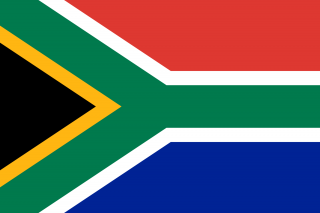The 2016 misery index report ranks South Africa as the only African country with the most miserable economy. The report, which comprises of 63 economies, was compiled by adding the levels of a country’s unemployment and year-over-year growth in its consumer price index, along with standing calculations where a higher score indicates more misery. Overall, Venezuela came first as the world’s most miserable economy, while Argentina ranked second and South Africa retained its position from last year, ranking third.
It is rather shocking that South Africa made the misery index list while Sudan and Egypt which ranked eleventh and eighteenth position respectively last year, escaped the misery index list this year.
However, here are three reasons why South Africa is the most miserable country in Africa:
Fall in the Rand against the Dollar
The South African Rand, which was ranked as the 18th most-traded currency in the world in 2013, lost 26 percent of its value against the Dollar last year, making it the third worst-performing currency in the world.
Last month, the Rand fell to a seven-year record low, trading at 17.91 against the dollar as a result of China’s decision to execute a devaluation of the Yuan and changing the way it traded its currency which, in turn, affected South Africa.
In addition, the US Federal Reserve rates were hiked in December, a move which pushed investors to place more funds in the U.S. and to take them out of developing economies and this had an adverse impact on South Africa’s economy.
Political turmoil
South African president, Jacob Zuma’s administration has been dogged with different controversies and scandals, most of which have focused on corruption and nepotism. He allegedly has 782 charges for fraud and corruption against him currently. He has been accused of using state money to upgrade his mansion and also of nepotism when his daughter was appointed to a senior position in a ministry.
The rapidly growing rate of social unrest across the country is alarming and to compound the problem, several companies and multinationals continue to announce massive job cuts thus, increasing the rate of unemployment in the country.
Fall in the price of commodities
The fall in commodity prices hit many of South Africa’s biggest companies last year. Anglo American planned to sell coal mines in South Africa as part of a major restructuring expected to shed over 85,000 jobs.
Mining continues to account for about 50 percent of the South African foreign exchange earnings and 18 percent of her GDP. The fall in commodity price implies a growing current account deficit as well as low foreign earnings. Despite the International Monetary Fund (IMF) posit of South Africa’s economy to experience just over 2 percent growth, the misery index places South Africa on a bad note in the second month of this year.








